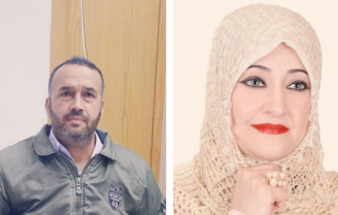-
COVID’s Mirror on Humanity

Over half a year into the Coronavirus crisis and there is much we now know and much that alludes us as to what is this deadly contagion that has caused so much chaos for so many of us. Back in 2002 then US-Defence Secretary, Donald Rumsfeld, famously said that when it came to Iraqi weapons of mass destruction there were “known knowns; there are things we know we know. We also know there are known unknowns; that is to say we know there are some things we do not know. But there are also unknown unknowns—the ones we don't know we don't know”.
Jean-Francois Delfraissy, a specialist helping France with its COVID-19 response, described the virus as “devious”. Many of the world’s most developed health systems had been preparing for a influenza pandemic, instead we have a Coronavirus but one unlike those that have previously wracked SE Asia and the Middle East.
The New York Times Health Correspondent updated readers to several significant new pieces of information about the virus which shine a new light on the enormity of the challenge in tackling it. Indeed, the new, or at least more reliable, pieces of information show how COVID is strong because it relies on fundamental principles of human behaviour to flourish.
The most significant new piece of knowledge about COVID is that it seems able to be transmitted in the air, not solely through heavy water droplets from people coughing or sneezing. This is a threat indoors and in workplaces where there is not large social distancing and explains the numerous outbreaks in food processing plants.
The second trend that data is exposing is for the high numbers of asymptomatic carriers, potentially as high as 50% of those infected. People showing no symptoms who could infect others simply by talking to them highlights the danger of the disease. Human beings are social creatures and social distancing, whilst logical, goes counter to the way in which we interact as a species.
As does touch, but again the ability of COVID to transmit through contact, particularly the hands, means that handshakes are off limits and according to the guidelines of many countries so is hugging outside of close family. Grandparents unable to hug their new-born grandchildren is one of the infinite numbers of repercussion ripples that have been sent out by pandemic.
Human beings who have to be wary of talking to and touching other human beings are likely to seriously alter the way they live their lives. Whilst at the seeming peak of the Pandemic so far countries largely shut down international travel, today we’re left with big questions as to how confident travellers will be to be on confined spaces for long periods of time. Some of the central tenants of globalisation, of supply chains, of tourism and of interconnected societies are being challenged by the virus.
Another way in which is COVID is proving uniquely challenging to humanity is in its end point. People may presume that a vaccine will be discovered and there is certainly hope in many of the trials that are ongoing. Yet there has never been a vaccine for a coronavirus before and other deadly diseases like AIDS have claimed millions of lives without an effective cure being found. More recent findings on COVID have revealed that immunity for those who’ve had the disease may be limited, with antibodies not lasting beyond a period of months. This means the prospect of ‘immunity passports’ is unlikely, and reinfection is a real risk, with those who are elderly or with comorbidities at particular risk.
US President Trump reminded Americans that 99% of those who get COVID survive, whilst this is statistically the case a virus that takes 1% of the world’s population is surely enough of a terrifying prospect to take urgent and dramatic action. What is less well known is the continued health impacts on those people who’ve recovered from COVID. As the virus is seemingly a vascular disease its ability to effect organs across the body means that the scale of damage for the 99% of those who survive it is one of the ‘known unknowns’.
Not only does Covid-19 damage the lungs, heart and kidneys, it can also cause severe brain damage – with patients suffering neurological conditions including paranoia and hallucinations, a British scientific study has revealed in the journal “Brain”. Whilst countries are still struggling to code the COVID caused death correctly, the prospect of it wreaking havoc in other organs and particularly the brain is a terrifying prospect indeed.
There has been much talk to date as to how the world can ‘build back better’ from COVID in terms of sustainable economies, tackling climate change and air pollution, inequality, poverty, racism and more. Yet the long term challenge of the disease is how it impacts on each individual and how they interact with others and the world around them.

by : jamse danselow
Tags
You May Also Like
Popular Posts
Caricature
BENEFIT AGM approves 10%...
- March 27, 2025
BENEFIT, the Kingdom’s innovator and leading company in Fintech and electronic financial transactions service, held its Annual General Meeting (AGM) at the company’s headquarters in the Seef District.
During the meeting, shareholders approved all items listed on the agenda, including the ratification of the minutes of the previous AGM held on 26 March 2024. The session reviewed and approved the Board’s Annual Report on the company’s activities and financial performance for the fiscal year ended 31 December 2024, and the shareholders expressed their satisfaction with the company’s operational and financial results during the reporting period.
The meeting also reviewed the Independent External Auditor’s Report on the company’s consolidated financial statements for the year ended 31 December 2024. Subsequently, the shareholders approved the audited financial statements for the fiscal year. Based on the Board’s recommendation, the shareholders approved the distribution of a cash dividend equivalent to 10% of the paid-up share capital.
Furthermore, the shareholders endorsed the allocation of a total amount of BD 172,500 as remuneration to the members of the Board for the year ended 31 December 2024, subject to prior clearance by related authorities.
The extension of the current composition of the Board was approved, which includes ten members and one CBB observer, for a further six-month term, expiring in September 2025, pending no objection from the CBB.
The meeting reviewed and approved the Corporate Governance Report for 2024, which affirmed the company’s full compliance with the corporate governance directives issued by the CBB and other applicable regulatory frameworks. The AGM absolved the Board Members of liability for any of their actions during the year ending on 31st December 2024, in accordance with the Commercial Companies Law.
In alignment with regulatory requirements, the session approved the reappointment of Ernst & Young (EY) as the company’s External Auditors for the fiscal year 2025, covering both the parent company and its subsidiaries—Sinnad and Bahrain FinTech Bay. The Board was authorised to determine the external auditors’ professional fees, subject to approval from the CBB, and the meeting concluded with a discussion of any additional issues as per Article (207) of the Commercial Companies Law.
Speaking on the company’s performance, Mr. Mohamed Al Bastaki, Chairman BENEFIT , stated: “In terms of the financial results for 2024, I am pleased to say that the year gone by has also been proved to be a success in delivering tangible results. Growth rate for 2024 was 19 per cent. Revenue for the year was BD 17 M (US$ 45.3 Million) and net profit was 2 Million ($ 5.3 Million).
Mr. Al Bastaki also announced that the Board had formally adopted a new three-year strategic roadmap to commence in 2025. The strategy encompasses a phased international expansion, optimisation of internal operations, enhanced revenue diversification, long-term sustainability initiatives, and the advancement of innovation and digital transformation initiatives across all service lines.
“I extend my sincere appreciation to the CBB for its continued support of BENEFIT and its pivotal role in fostering a stable and progressive regulatory environment for the Kingdom’s banking and financial sector—an environment that has significantly reinforced Bahrain’s standing as a leading financial hub in the region,” said Mr. Al Bastaki. “I would also like to thank our partner banks and valued customers for their trust, and our shareholders for their ongoing encouragement. The achievements of 2024 set a strong precedent, and I am confident they will serve as a foundation for yet another successful and impactful year ahead.”
Chief Executive of BENEFIT; Mr. Abdulwahed AlJanahi commented, “The year 2024 represented another pivotal chapter in BENEFIT ’s evolution. We achieved substantial progress in advancing our digital strategy across multiple sectors, while reinforcing our long-term commitment to the development of Bahrain’s financial services and payments landscape. Throughout the year, we remained firmly aligned with our objective of delivering measurable value to our shareholders, strategic partners, and customers. At the same time, we continued to play an active role in enabling Bahrain’s digital economy by introducing innovative solutions and service enhancements that directly address market needs and future opportunities.”
Mr. AlJanahi affirmed that BENEFIT has successfully developed a robust and well-integrated payment network that connects individuals and businesses across Bahrain, accelerating the adoption of emerging technologies in the banking and financial services sector and reinforcing Bahrain’s position as a growing fintech hub, and added, “Our achievements of the past year reflect a long-term vision to establish a resilient electronic payment infrastructure that supports the Kingdom’s digital economy. Key developments in 2024 included the implementation of central authentication for open banking via BENEFIT Pay”
Mr. AlJanahi concluded by thanking the Board for its strategic direction, the company’s staff for their continued dedication, and the Central Bank of Bahrain, member banks, and shareholders for their valuable partnership and confidence in the company’s long-term vision.
opinion
Report
ads
Newsletter
Subscribe to our mailing list to get the new updates!






















